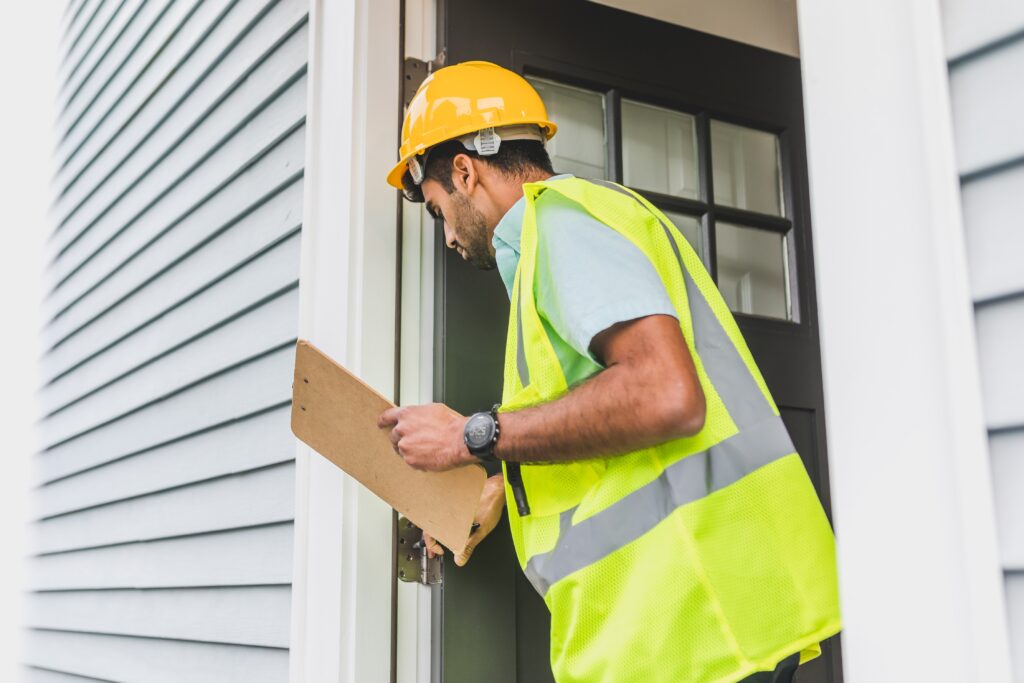Finding yourself unable to remortgage your current home can be an incredibly stressful situation. Maybe your income or credit score has taken a hit recently, or perhaps your mortgage is simply in negative equity. Whatever the reasons, the good news is you have alternative options. Here, we outline what you can do if you can’t afford to remortgage your home.
Reasons you might be unable to remortgage?
Finding yourself unable to remortgage your current home can certainly be stressful. But it does happen, and there are many reasons why a homeowner might struggle to remortgage their property.
Drop in income or savings
An unforeseen job loss, reduced hours at work, or accumulated debts can mean lenders view you as higher risk and unqualified for favourable mortgage rates. Rebuilding your savings and paying down debts may help improve your borrowing capacity, although it takes time to do this unless you have a large cash injection from somewhere.
Poor credit score
A damaged credit history featuring late payments, defaults or excessive debts in your record can significantly hinder the kinds of rates and remortgaging options you qualify for. Taking a look at your credit report a few months before the mortgage is due for renewal can help you start to put things right if the score is on the lower side.
Mortgage is in negative equity
If your current mortgage balance far exceeds the property’s actual market value, very few lenders will approve you for refinance. In this case, exploring alternate financing like shared equity loans or downsizing to a less expensive property may even be necessary if you’ve exhausted all options available with the lender.
Higher interest rates
With recent fluctuations in the UK’s interest rates due to economic changes, homeowners may face increased monthly repayments, particularly those moving from older, lower fixed rates to new higher interest mortgages. This rise can significantly impact affordability, especially when transitioning from a fixed-rate deal to a higher current rate.
What happens if I can’t afford to remortgage?
Once your mortgage ends, you’ll likely go onto the lender’s standard variable rate (SVR). This rate is usually significantly higher than the fixed period and can see you paying up to 10% (sometimes more) in interest. Therefore, homeowners who can’t afford to remortgage usually need to act quickly to avoid going on the SVR and finding themselves out of pocket.
What options do I have if I can’t repay my mortgage?
Finding yourself unable to remortgage your current home can be an incredibly stressful situation. Whether due to income or employment changes, credit score drops, or simply an overwhelming existing mortgage, not qualifying for favourable refinancing can put your financial future in peril.
All is not lost, though. By avoiding rash refinancing attempts, leaning on expert advice and exploring special arrangements with your current lender, you can navigate towards more stable financial footing.
Consider holding off on applying for a remortgage straight away
When struggling with mortgage payments, your instinct may be to immediately apply elsewhere for better rates if they’re available. It’s important, however, to understand how excessive credit checks in a short time impact applications.
Each time you apply for a new line of credit — whether a mortgage, car loan or credit card — the lender runs a ‘hard check’ on your credit report to gauge eligibility. Too many of these checks can directly compromise your credit score, suggesting financial desperation to lenders.
Improve your credit score
Demonstrating steps towards being able to manage debts and payments, like establishing a debt management plan, can gradually help restore your credit score and future mortgage eligibility. Continue making timely payments on your debts and reducing reliance on credit until your profile stabilises. This can have a positive impact, although it’s more of a long-term solution.
Look at the possibility of extending your repayment period
Extending your repayment period raises the total interest costs, but it also lowers monthly payments, which may take the sting out of being stuck on your lender’s SVR once the fixed-term has ended. Lenders want to retain relatively low-risk customers, so they may allow payment deferrals or term extensions of up to ten years to prevent default.
Ask the experts
An independent mortgage broker or adviser from Citizens Advice can identify options tailored to your circumstances. Their expertise has helped guide many through similar situations and often helps to find alternative solutions. Though fees vary, the guidance can ultimately save you substantial money.
Advisers also help with other related aspects, such as constructing budgets, offering money-saving pointers and recommending debt management plans. Leaning on professional expertise can be valuable when navigating mortgage affordability challenges.
Switch to an interest-only mortgage
Interest-only mortgages mean you just pay the interest on your loan each month over an agreed term without repaying the capital loan amount. This can significantly reduce monthly outgoings to potentially affordable levels in a short while enabling you to get your finances back on track. Just remember that you’ll need to repay the full amount at the end of the loan term. One option could be to take an interest-only mortgage in the short term and switch back to repayment when you can afford the mortgage costs.
Rent out and move out
If you own more than 25% equity in your property, you might consider applying for a buy to let mortgage. Going this route you’d get to remortgage your property, and most likely get a better rate than an SVR.
With this arrangement, your property will be assessed differently by lenders. Instead of them looking at your financial situation, they will look at potential rental yield.
With this strategy, you can rent your property to a tenant and use the proceeds to pay the mortgage, but you’ll need to consider how the rent will impact your income tax. Income tax would apply to the rent amount received, according to your tax bracket. Interest and principal are not tax deductible. We recommend you speak to an accountant to learn exactly how much you’d be paying in income tax if you choose this route. You’d also need to find somewhere for you and your family to live since your own house would now be rented by a tenant.
Can I sell my home as an option?
If you’ve evaluated all the alternatives yet still face affordability struggles, then selling your home may be the best path forward. While emotionally difficult, the financial freedom gained from releasing yourself from an unsustainable mortgage may outweigh holding onto unaffordable property.
Selling also allows you to downsize to a less expensive home aligned with your budget or rent short-term as you work to improve your credit for future purchasing power. There are always options, and sometimes selling opens more doors than painfully persisting in a property that far exceeds your means.
What’s the best way to sell my home if I can’t afford my remortgage?
There are a few options for selling your home if you’re unable to remortgage. The obvious — but not necessarily the best — is an estate agent. If, however, you’re time-sensitive, going down the traditional route might not be best suited to you as it can take up to six months to sell your home. That could mean six months paying an SVR mortgage.
A cash-buying company like Property Rescue is the smart alternative. We buy your home in as little as 48 hours, guaranteeing a fast sale for anyone who can’t afford their remortgage and needs to sell their property quickly to avoid SVRs. We even take care of all the legal costs, meaning you only need to accept our offer and let us do the rest.
Summary: Selling when you can’t remortgage
While finding yourself unable to remortgage can certainly seem daunting, exploring alternatives like extending your mortgage term, enlisting expert guidance or even selling your property provides options to regain financial stability. Property Rescue offers a free, no-obligation quote for your home. With an openness to solutions and strategic support, the path forward can be a successful one.





